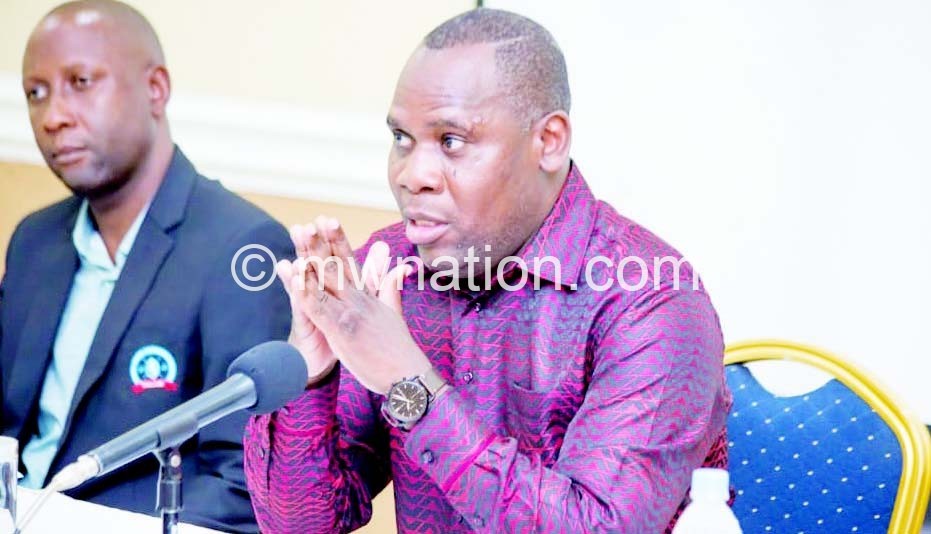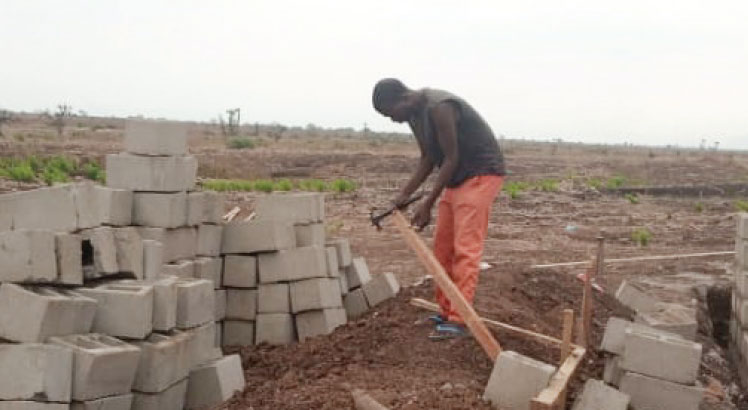The World Bank says poverty levels in the country remain high as about half of the population has remained trapped in extreme poverty in the decade between 2010 and 2019.
The trends have been worsened by, among others, population growth and recurring climate shocks, especially in the Southern and Central regions where floods and droughts have been persistent during the period.
The report titled ‘Poverty persistence in Malawi, climate shocks, low agricultural productivity and slow structural transformation’, challenges the Malawi Government to prioritise policies for growth and social support that have the largest impact on the poor.
Presenting the report yesterday in Lilongwe, World Bank economist Lina Cardona said for every three Malawians that moved out of poverty between 2010 and 2019, four slid back due to the impact of weather shocks.
She said that around 60 percent of Malawians experienced at least one episode of poverty either in 2010 or 2019 or in both years, a figure that demonstrates the persistence of poverty.
Said Cardona: “Among all individuals observed in 2010, 15 percent moved out of poverty by 2019 while 18 percent moved into poverty. Almost 30 percent remained poor and 40 percent remained non-poor in the same period.”
The report said rural areas in the Central Region recorded the largest movement into poverty at 30 percent while the rural North was the lowest at eight percent. In contrast, in rural North and South, 20 percent of the people escaped poverty.
Those who escaped poverty, according to the report, included those who moved from agriculture to pieceworks (ganyu), household businesses, salaried employment and those that improved their levels of education.
In a telephone interview yesterday, Malawi University of Business and Applied Sciences associate professor of economics Betchani Tchereni said people have slipped back into poverty because the country is not growing enough to create gainful employment.
He said: “We are not exporting enough and the kwacha keeps on losing value leading to more inflationary pressures. This is increasing the problem of food insecurity and widening inequality.”
Tchereni urged the leadership to prioritise what he referred to as “investment directed donor support” such as Mega farms, manufacturing, and import substitution.
Minister of Finance and Economic Affairs Sosten Gwengwe, who presided over the launch of the report, admitted that poverty has worsened.
He said the quickest way to move out of the vicious cycle is to grow the economy by creating wealth.
“The biggest recommendation can be summed up in government concentration on growth factors and one of such is supporting the private sector. Even in our budgets, we are coming up with policies that support the local manufacturers,” Gwengwe said.
He said government will in the November meeting of Parliament introduce a Bill on foreign exchange to ensure that the country generates and recoups forex from exports.
Secretary for Economic Planning and Development Winford Masanjala said there is need for a value chain approach to agriculture by ensuring that farmers have access to ready markets as well as drawing a line between the rural poor and the rural rich in terms of the kind of support to be offered.
The World Bank report further indicates that between 2010 and 2019, the contribution of agriculture as the main source of household income declined from 70 percent to below 50 percent and the short-term hired labour increased from 17 percent to 37 percent while household businesses contribution increased to 11 percent.
The report also warns that the global increase in food and fuel prices due to the Ukraine-Russia war will harm Malawians more.
Some of the policy recommendations in the report include redoubling government’s efforts to support the private sector to create jobs and pull labour out of agriculture and incentivise rural-urban migration and increasing agricultural productivity.
National Planning Commission director general Thomas Chataghalala Munthali, whose institution is behind implementing the Malawi 2063, declined to comment when contacted yesterday.
The post Over 8m Malawians living in poverty—World Bank appeared first on The Nation Online.
 Moni Malawi
Moni Malawi 

